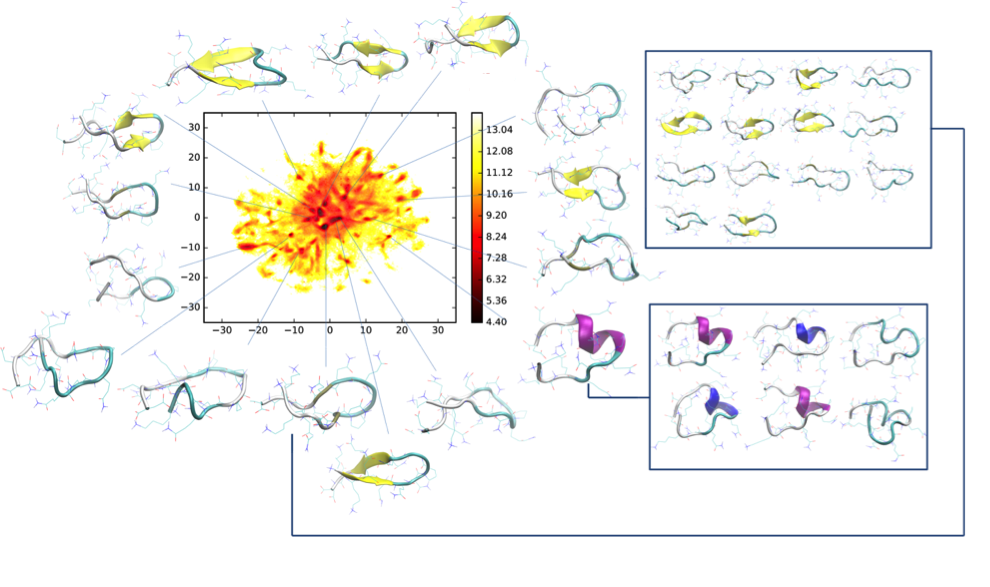PolyQ

An extension of a polyglutamine (polyQ)-sequence behind a critical threshold level in some of the host proteins causes neurodegenerative diseases, the most well-known is the Huntington disease. Short polyQ-peptides are a suitable experimental and simulation model system for the study of the main pathological feature of these disaeses - aggreagtion and the processes leading to it. In addition, polyQ peptides being polar homopolymers and having large similarity between the backbone and sidechain parts of the molecule, exhibiting numerous hydrogen bonding possibilities, are an important and unique representative of the intinsically disordered systems. In this project, polyQ-peptides with various lengths and intervening residues are investigated with MD simulations coupled with advanced sampling methods and analytical techniques, in order to obtain an atomic level description of the short timescale processes happening in these conformational ensembles, the first steps of aggregation, and the effect of various factors on the complex disordered energy landscapes and aggregation, also serving as a complement to experimental data addressing larger systems and longer timescales.
